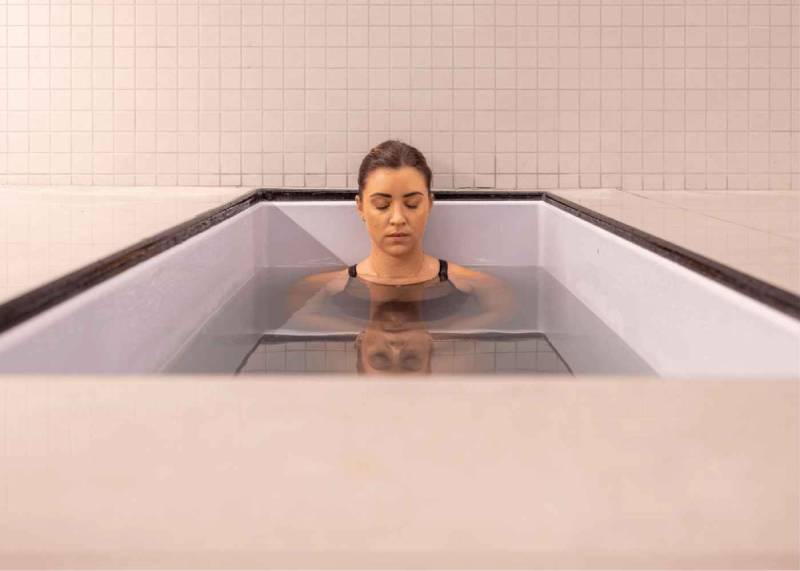Cold therapy uses cold temperatures to improve mental health or well-being. It can be done in various ways, including an adapted cold shower, ice bath, or even just spending time outdoors in cold weather. To have a comprehensive idea about this topic, we will discuss how this therapy works and how you can start using it today.
HOW DOES COLD THERAPY WORK FOR DEPRESSION AND ANXIETY?
Cold therapy is an effective anxiety treatment and tool for easing the symptoms of depression. This form of therapy involves exposure to cold temperatures to help reduce stress and improve mood. This can be achieved through various methods, from simple cold showers to specialised treatments. Studies have shown that cold temperatures produce physical effects that can help ease anxiety symptoms. This includes increased levels of norepinephrine in the brain and an increase in endorphin production.
Cold water therapy also has been linked with a decrease in stress hormones such as cortisol while raising “happy” hormones like serotonin. With these changes come improvements such as enhanced memory retention and better decision-making abilities.
BENEFITS OF USING COLD THERAPY FOR ANXIETY AND DEPRESSION
Cold therapy has been used for centuries to reduce pain and inflammation. But recent studies have shown that it can also be an effective tool for alleviating anxiety and depression. Cold temperatures can help to regulate the nervous system, which in turn can reduce stress levels. This makes it a handy tool for those struggling with mental health issues.
Here are some of the top benefits of using cold therapy for anxiety and depression:
1. REDUCES INFLAMMATION
One of the primary benefits of cold therapy is that it can help to reduce inflammation. Inflammation is a natural response of the body to injury or infection. While it is necessary for healing to occur, chronic inflammation can lead to a variety of health problems. This therapy works by constricting blood vessels and reducing swelling, helping reduce inflammation.
2. SOOTHES ACHING MUSCLES
Cold therapy is a great way to soothe sore and aching muscles, whether they result from a workout, injury, or inflammation. Many people find relief from muscle pain after just a few minutes of cold therapy. By numbing the nerves and reducing muscle spasms, it can help to reduce pain and stiffness. For athletes and those with active lifestyles, cold therapy is an ideal strategy for managing post-workout aches and pains. It can even relieve conditions such as arthritis by improving joint flexibility.
3. BOOSTS IMMUNITY
Increasing immunity and supporting the body’s natural defence system against illnesses is essential. Thankfully, cold therapy is one of the many options available to help in this area. When you are exposed to freezing temperatures, your body reacts by ramping up the production of white blood cells. These immune cells are responsible for fighting infection throughout the body. In addition, the proteins that counter inflammation are also produced at higher levels when exposed to cold temperatures. This helps to support overall immunity even further.
Additionally, immersing yourself in cold water or taking a cold shower can also help to improve circulation. It increases venous return and allows oxygen and vital nutrients to reach our organs at an increased rate. This is key in allowing our immune systems to function more effectively. As cells need nourishment to fight off any pathogenic organisms they come into contact with.
4. IMPROVES MOOD
Cold therapy has recently become popular among those looking to improve their mental and physical health. One potential benefit is improved mood, which can help individuals cope with the demands of everyday life. Research suggests that exposing oneself to colder temperatures causes the release of endorphins. It can be associated with feelings of happiness and well-being in a study examining cold water immersion therapy and its effects on mood. It was found that those who participated in cold therapy immersion felt less anxious and depressed than those who did not receive any treatment. This is likely due to increased levels of endorphins in the body caused by cold exposure.
5. INCREASES ENERGY LEVELS
Cold therapy has many impressive benefits. Its increased energy levels are one of the reasons why it is so popular, especially for athletes, health practitioners, and everyday individuals looking to improve their performance. Experts say undergoing whole-body cryotherapy can lead to an increased feeling of alertness and energy. It is believed that this happens because cold temperatures stimulate the nervous system, promoting mental acuity and faster metabolic processing.
With regular exposure to cold therapy, individuals report feeling more awake and aware. This can lead to better job performance and enhanced physical performance for outdoor activities or sports. In addition, cold therapy offers an easy way for people wanting a natural boost in energy levels without resorting to stimulants.
CONCLUSION
With all the documented benefits of using cold therapy for anxiety and depression, it is easy to see why this practice has become so popular. From reducing inflammation and soothing aching muscles to boosting immunity and improving mood, cold therapy can effectively assist in the management of mental health issues. So if you are looking for a natural way to combat anxiety and depression, consider giving cold treatment a try.




